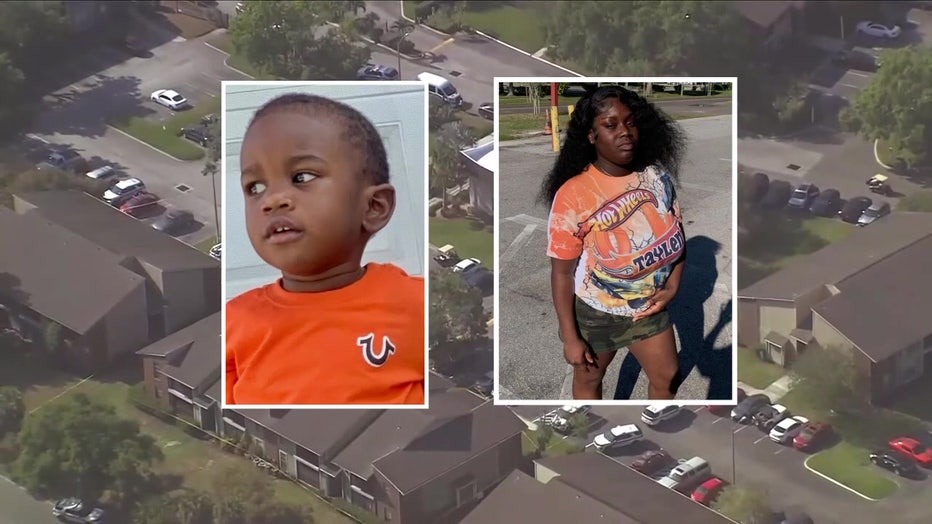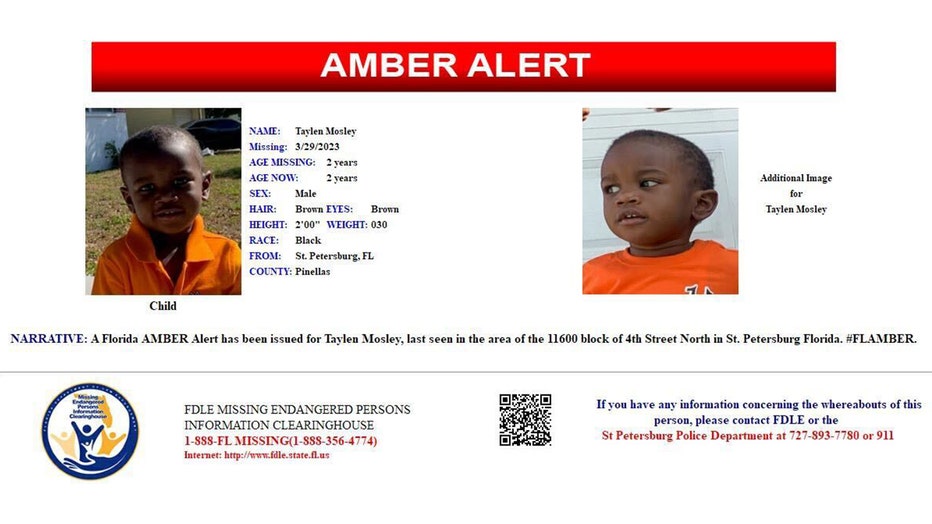St. Pete man pleads not guilty to killing woman, missing toddler found in alligators mouth

Mugshot of Thomas Mosely with Pashun Jeffery and Taylen Mosely courtesy of the Pinellas County Sheriff's Office.
ST. PETERSBURG, Fla. - The man accused of drowning his 2-year-old son and stabbing the child’s mother to death has pleaded not guilty to the crimes.
On Friday, Thomas Mosely’s attorney entered a not guilty plea on his behalf his client inside a Pinellas County courtroom.
Mosely is facing two counts of first-degree murder in the deaths of his young son and the child’s mother.

The body of 20-year-old Pashun Jeffery was discovered inside an apartment on March 30 with more than 100 stab wounds after her mother requested a welfare check.
Jeffery’s two-year-old son, Taylen, however, was nowhere to be found, triggering an Amber Alert.

Provided by FDLE
The missing toddler’s body was discovered the next day inside an alligator’s mouth. A medical examiner said the child had drowned.
During an earlier hearing, Judge Patrice Moore said that Mosely was at Jeffery’s apartment on March 29 for a birthday party. He was admitted to St. Anthony’s Hospital around 9 p.m. that night.
Jeffery’s family and friends, who were at Jeffery’s apartment for the party as well, left around 5:15 p.m. that day, the judge and the affidavit said.

Pashun Jeffrey and Taylen Mosley
Around 8:42 that night, Jeffery’s phone appeared to be near Lake Maggiore, where little Taylen’s body was later found inside an alligator’s mouth, arrest documents show.
READ: Family lays murdered mother, 2-year-old son to rest in private funeral service
Meanwhile, according to the documents, Mosley went to his mother’s home around 9:03 p.m. on March 29 with cuts on his arms and was later taken to the hospital.
The state submitted a subpoena for Mosley’s medical records, and the defense filed an objection to the subpoena on April 11. In the objection, the defense says Mosley’s medical records are protected under state and federal rights to privacy and should not be given to the prosecution.

Evidence hearing held in Thomas Mosley double murder case
A hearing was held Tuesday about whether the prosecution will be allowed to obtain 21-year-old Thomas Mosley’s medical records from St. Anthony’s Hospital. He's accused of killing his toddler and the boy's mother in St. Petersburg.
Attorneys said during a previous court hearing that Mosley had surgery while he was in the hospital, and he was also put under a Baker Act.
Prosecutors told the judge they don’t want any records related to the Baker Act, but argued Mosley’s medical records related to the lacerations and to his bloodwork are relevant to the case.
Prosecutors also said toxicology records would show whether Mosely was under the influence of anything else before or at the time of the homicides.
During Friday's hearing, the judge ruled that the prosecution could not have Mosely’s toxicology information from Mosely’s medical records. However, they may use everything else from that hospital visit in the criminal case.

